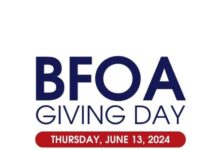
(By Mike McVay) Memorial Day weekend wrapped up yesterday. Many see that holiday as the official kick-off to Summer. For most Americans, it means the end of the school year, vacations, and long weekends. For radio, it means live events, promotions, and marketing for advertisers.
Despite Memorial Day’s purpose to remember those who lost their lives during war and conflicts, it’s not unusual to hear radio stations use the inappropriate statement “Happy Memorial Day” in sweepers and produced messaging. That’s the wrong approach to this holiday. It’s a day for remembrance and the word “Happy” shouldn’t apply to this holiday.
Holidays are always special. They are particularly special when it comes to the big three summer holidays and Christmas & New Year’s Eve/Day. It is a time when radio stations present special programming. For some, it’s the Indy 500 as they play the 500 Greatest Songs of All Time across the four-day holiday weekend. For others, it is playing music from a particular era. It is a time when radio stations highlight their regularly scheduled weekend specials. It’s an opportunity to match the audience’s lifestyle.
Special programming is commonplace on many radio stations, but these features are often not promoted on-air as they should be promoted. The reason to air specials is to let an audience know that your station is still on the air on Saturday night, Sunday morning, Weekdays from noon to one, and any other times that are thought of as fringe.
Special programming allows you to talk about things you may not normally talk about, provided you can do it without failing the listener’s expectation of the Station. Regularly promote those things that your Station programs that are out of the ordinary. Be sure to explain their purpose. Note: they cannot stray so far from your format that they fall into the category of a format change.
The majority of the audience may never listen to a weekend special, but nonetheless, they provide opportunities to move an audience from one day part to another. They are opportunities to promote special things whenever you’re doing them. An opportunity to take the occasional listener and make them a regular listener. Specials have value.
There is a word of caution here. Specials become a problem when what a station does normally is already special. Meaning – if you’re a radio station that programs Classic Rock, Classic Country, Old School R&B, Classic Hits, and so on, you cannot stray too far from what’s already seen as special. Those formats are unique and niche.
It’s a generally known fact that listeners program their own radio station by hitting the buttons on their radios. If yours is a radio station that plays a niche format most of the time, then doing something special has to have a significant purpose because otherwise, it takes the audience away from what is already special.
Promoting into and out of specials should be standard operating procedure. Tell the people when the special airs, what it provides to them and for them, and when they can regularly hear it. Promote back into your regular programming from within special programming so that the occasional listener has a “feel” for what it is you present when you are in regular programming. It’s a chance to ask for a button on someone’s radio. It’s a chance to encourage someone to download your app. It’s a chance to tell listeners how they can find your station on their smart speakers, on-demand, or even on their laptops.
Special programming has value. Specials are special. Unless, that is, there are so many special programs on your radio station that they overwhelm your regular format. Then your regular format becomes what’s special… and that’s a problem.
Mike McVay is President of McVay Media and can be reached at [email protected]. Read Mike’s Radio Ink archives here.





